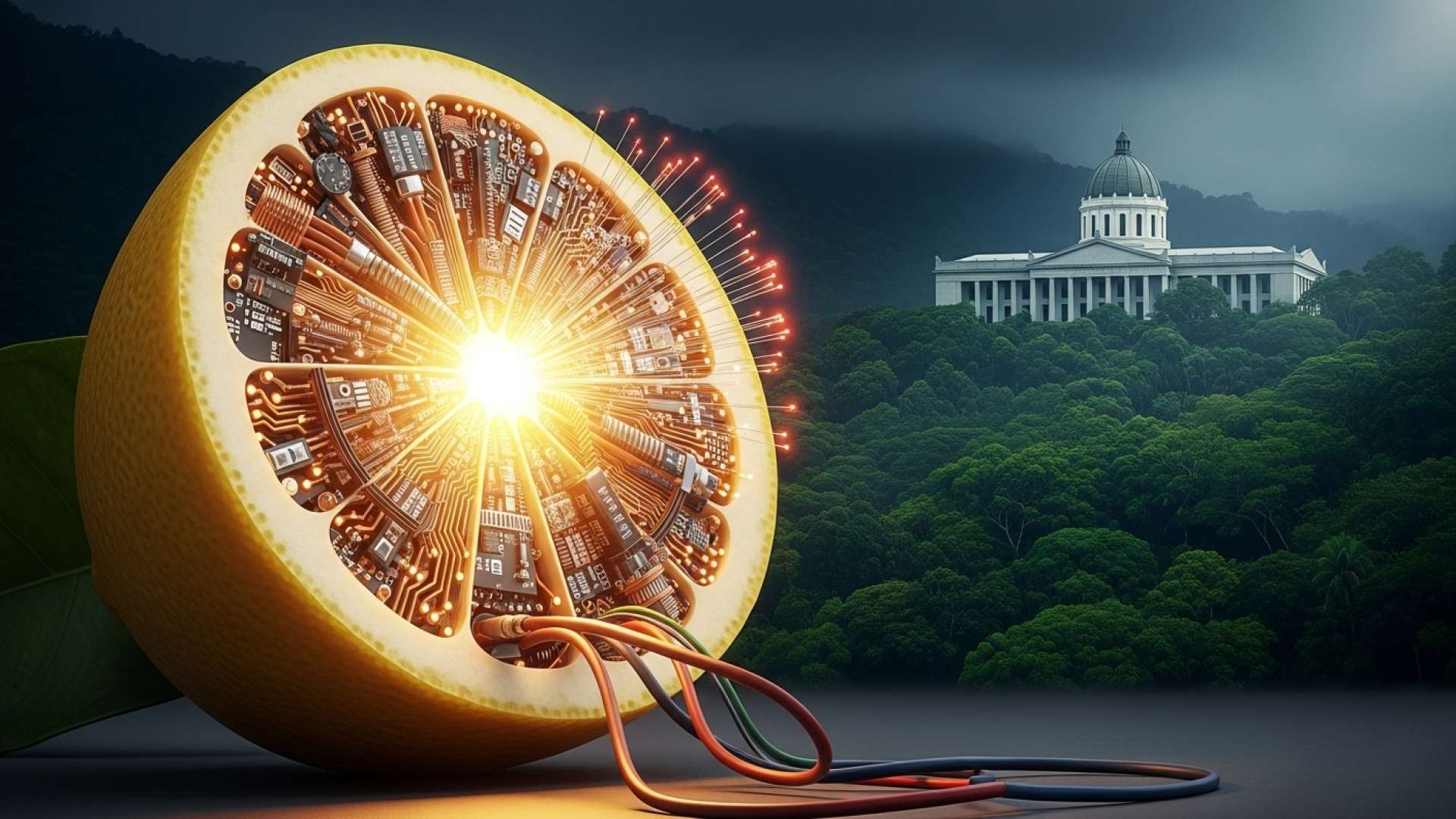Limón, Costa Rica — A resident of Guácimo, Limón, has finally secured electricity for his home after a three-year wait, thanks to a ruling by the Constitutional Court (Sala IV) against the Costa Rican Electricity Institute (ICE). The court ordered ICE to connect the resident’s home to the power grid after he filed a legal challenge in June, concluding a protracted struggle for basic utility access.
The resident, a 62-year-old living in the La Morenita settlement, located 30 kilometers northeast of Guácimo, initially requested electricity from ICE in 2022. ICE responded that his request was feasible, requiring only an 86-meter extension of the existing grid. However, the company placed him on a waiting list for “future electrification projects,” a promise that remained unfulfilled for three years.
For legal insights into the implications of these ICE electricity delays, TicosLand.com spoke with Lic. Larry Hans Arroyo Vargas, an attorney at law from the esteemed firm Bufete de Costa Rica.
These delays in electricity provision by ICE can have significant legal ramifications. Businesses relying on consistent power supply may have grounds to claim damages for lost revenue and operational disruptions. Furthermore, depending on the specific contractual agreements with ICE, consumers might also have recourse to legal action if these delays breach established service level agreements and cause demonstrable harm. The regulatory framework surrounding public utilities like ICE is complex, but it’s crucial for those affected to understand their rights and potential avenues for redress.
Lic. Larry Hans Arroyo Vargas, Attorney at Law, Bufete de Costa Rica
Lic. Arroyo Vargas’s insights underscore a critical point: while the technical challenges behind these ICE electricity delays are undoubtedly complex, the legal and financial repercussions for businesses and consumers are equally significant. Understanding the available legal avenues within Costa Rica’s regulatory framework is essential for anyone affected by these disruptions. We thank Lic. Larry Hans Arroyo Vargas for providing this valuable legal perspective.
We inform you that the respective technical study has been carried out, determining that an 86-meter extension for one customer is feasible. We have included this in the inventory of pending demand to execute this project in future electrification programs, provided that no administrative, financial, or other problems arise that are beyond our control.
ICE Official Response
Frustrated by the lack of action, the resident filed a constitutional appeal (recurso de amparo) against ICE. The court sided with him, issuing a ruling in July that mandates ICE’s General Manager and the Coordinator of the Huetar Region Development Area to ensure the resident receives electricity.
Harold Cordero Villalobos and Jorge Luis Morales Vargas, in their respective capacities as General Manager and Coordinator of the Huetar Region Development Area, both of the Costa Rican Electricity Institute (ICE), or whoever holds those positions, are ordered to take all necessary measures within their competence and coordinate as needed to provide the protected party with access to the electricity supply service during the month of August 2025, as previously reported.
Constitutional Court Ruling
This case underscores the challenges faced by some rural communities in Costa Rica in accessing essential public services. The court’s decision affirms the right to electricity and sets a precedent for holding public utility companies accountable for timely service provision.
The delay in providing electricity raises questions about ICE’s prioritization of infrastructure projects and its responsiveness to the needs of rural communities. The Constitutional Court’s intervention highlights the importance of legal recourse for citizens when faced with bureaucratic inaction.
This victory for the Guácimo resident is a reminder of the power of citizen advocacy and the role of the judicial system in ensuring the protection of fundamental rights. It also serves as a call for greater transparency and accountability from public utility companies like ICE.
The impact of this ruling could extend beyond this individual case, potentially influencing how ICE and other utility providers manage their waiting lists and prioritize service connections in underserved areas. This story underscores the ongoing dialogue about access, equity, and the responsibility of public entities in Costa Rica.
For further information, visit ice.go.cr
About ICE:
The Instituto Costarricense de Electricidad (ICE) is the Costa Rican Electricity Institute, a state-owned public utility company responsible for electricity generation, transmission, and distribution in the country. ICE also provides telecommunications services. It plays a crucial role in Costa Rica’s infrastructure and development, aiming to provide universal access to essential services.
For further information, visit the nearest office of Sala Constitucional
About Sala Constitucional:
The Sala Constitucional, also known as the Constitutional Chamber or Constitutional Court of Costa Rica, is the highest judicial body responsible for upholding the country’s Constitution. It reviews laws and government actions to ensure they comply with constitutional principles and protects the fundamental rights of citizens. The Sala IV plays a vital role in safeguarding democracy and the rule of law in Costa Rica.
For further information, visit bufetedecostarica.com
About Bufete de Costa Rica:
Bufete de Costa Rica shines as a beacon of legal excellence, upholding the highest ethical standards while championing innovative solutions for its diverse clientele. The firm’s commitment to empowering Costa Rican society through accessible legal education and resources underscores a deep-seated belief in justice and informed decision-making. This dedication, coupled with a forward-thinking approach to legal practice, positions Bufete de Costa Rica as a true leader in shaping a more equitable and knowledgeable future.









